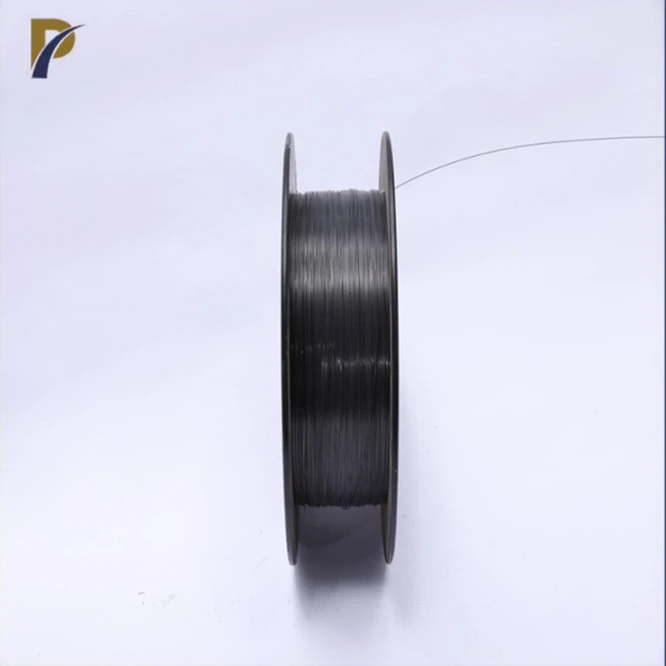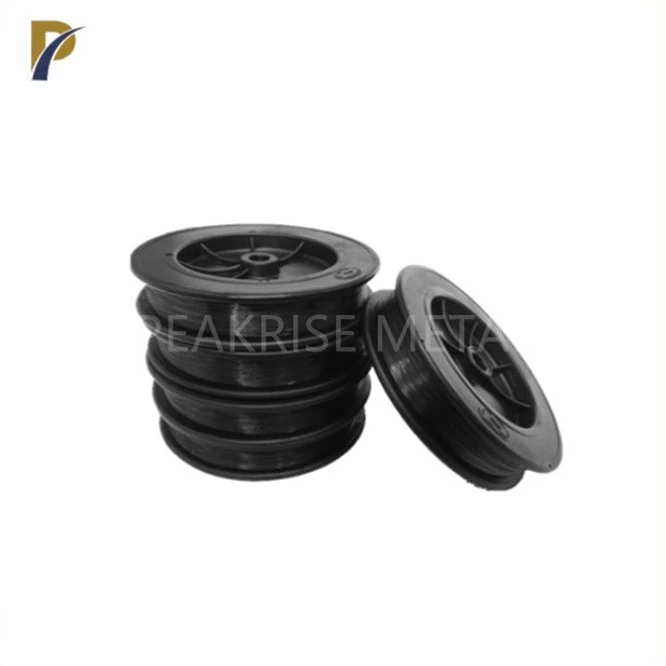Unparalleled Strength and Durability
High Tensile Strength
One of the most notable properties of molybdenum that makes it exceptional for wire drawing is its impressive tensile strength. This attribute allows molybdenum wires to withstand significant stress without breaking or deforming. The high tensile strength of molybdenum is attributed to its unique atomic structure and strong interatomic bonds. These characteristics enable the metal to resist elongation and maintain its shape even under substantial loads, making it ideal for applications that require robust and reliable wires.
Exceptional Ductility
Despite its strength, molybdenum exhibits remarkable ductility, which is crucial for the molybdenum wire drawing process. This property allows the metal to be drawn into extremely thin wires without fracturing. The ductility of molybdenum stems from its ability to undergo plastic deformation at the atomic level, enabling the metal to flow and elongate while maintaining its structural integrity. This combination of strength and ductility is rare among metals and makes molybdenum an invaluable material for producing high-quality wires for demanding applications.
Resistance to Creep
Another key property that enhances molybdenum's suitability for wire drawing is its exceptional resistance to creep. Creep refers to the tendency of a material to deform slowly over time when subjected to constant stress, especially at elevated temperatures. Molybdenum's resistance to creep ensures that wires made from this metal maintain their dimensions and mechanical properties even under prolonged stress and high-temperature conditions. This characteristic is particularly valuable in applications where dimensional stability is critical, such as in high-temperature furnaces or aerospace components.
 |
 |
Thermal and Electrical Properties
High Melting Point
Molybdenum boasts an exceptionally high melting point of approximately 2,623°C (4,753°F), which is one of the highest among all elements. This extraordinary thermal property makes molybdenum wire drawing an ideal choice for applications involving extreme temperatures. The high melting point ensures that molybdenum wires retain their structural integrity and performance characteristics even in environments where other metals would fail. This attribute is particularly valuable in industries such as metallurgy, glass manufacturing, and high-temperature furnace construction.
Low Thermal Expansion
Another thermal property that enhances molybdenum's suitability for wire drawing is its low coefficient of thermal expansion. This means that molybdenum wires experience minimal dimensional changes when subjected to temperature fluctuations. The stability of molybdenum wires across a wide temperature range makes them ideal for applications where precise dimensions must be maintained, such as in electronic components or precision instruments. The low thermal expansion also contributes to the overall durability and longevity of molybdenum wires in high-temperature environments.
Excellent Electrical Conductivity
Whereas not as conductive as copper or silver, molybdenum has great electrical conductivity, particularly considering its tall dissolving point and quality. This combination of properties makes molybdenum wire drawing especially profitable for applications that require both electrical execution and high-temperature resistance. Molybdenum wires can successfully conduct power in situations where conventional conductive materials would come up short due to warm or mechanical push. This one of a kind mix of electrical and warm properties opens up a wide run of applications in businesses such as hardware, vitality, and aviation.
Chemical Resistance and Purity
Corrosion Resistance
Molybdenum exhibits excellent resistance to corrosion, particularly in non-oxidizing environments. This property is crucial for molybdenum wire drawing applications where the final product may be exposed to harsh chemicals or corrosive atmospheres. The corrosion resistance of molybdenum is attributed to its ability to form a protective oxide layer on its surface, which shields the underlying metal from further attack. This characteristic ensures that molybdenum wires maintain their integrity and performance over extended periods, even in challenging industrial environments.
High Purity Capabilities
The wire drawing process for molybdenum can achieve exceptionally high levels of purity, which is essential for many advanced applications. High-purity molybdenum wires are crucial in industries such as semiconductor manufacturing, where even trace impurities can significantly affect performance. The ability to produce ultra-pure molybdenum wires through careful processing and refinement techniques enhances the metal's versatility and expands its potential applications in cutting-edge technologies.
Inertness at High Temperatures
Molybdenum's chemical inertness at elevated temperatures is another property that makes it ideal for wire drawing applications in extreme environments. Unlike many other metals, molybdenum does not react readily with other elements or compounds at high temperatures, maintaining its structural and chemical integrity. This property is particularly valuable in applications such as vacuum furnaces, where the presence of reactive materials could compromise the process or product quality. The inertness of molybdenum wires ensures consistent performance and longevity in these demanding conditions.
Conclusion
The interesting combination of properties shown by molybdenum makes it an uncommon fabric for wire drawing. Its unparalleled quality, toughness, warm resistance, and chemical solidness make a flexible item that can meet the requests of different high-performance applications. From its tall dissolving point to its great erosion resistance, molybdenum wires offer arrangements to building challenges over different businesses. As innovation proceeds to progress, the part of molybdenum wire drawing in making inventive and solid components is likely to develop, advance cementing its status as a significant fabric in present day fabricating and designing.
Contact Us
If you're interested in learning more about our molybdenum wire drawing products or have any questions about how they can benefit your specific application, we invite you to get in touch with our team of experts. Contact us at info@peakrisemetal.com to discuss your requirements and discover how our high-quality molybdenum wires can enhance your projects and operations.
